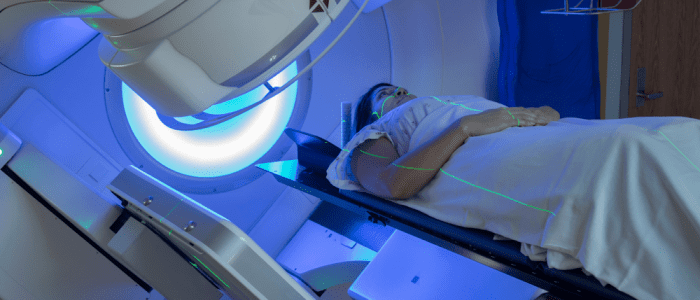
Although cancer may be a frightening prospect for most people, today different forms and types of cancer are completely treatable. Significantly, there are a large number of cancer survivors, particularly in developed countries such as India and the United States. According to research, the death rate of cancer patients has significantly decreased due to the scientific advancement in cancer treatment, such as improvements in technology, detection/diagnostic equipment, and genetic testing contributing to the early detection of abnormal cells before they change into cancer cells, increasing the chances of effective treatment.
People who are diagnosed earlier with cancer are not only more likely to survive, but they also have better experiences of care, lower treatment morbidity, and higher quality of life than those who are diagnosed later. Two distinct patient behaviours can help with an earlier diagnosis of cancer. These are attending cancer screening, which aims to diagnose cancer before it is symptomatic (eg, mammography for breast cancer) and presenting promptly to primary care with potential cancer symptoms.
How do you know if you have cancer?
There are more than 200 different types of cancer, each with its own set of symptoms. Sometimes symptoms are linked to certain types of cancer. However, signs can also be more general, such as weight loss, tiredness (fatigue) or unexplained pain.
You don’t need to try and remember all the signs and symptoms of cancer, but we've listed some of the most important ones to give you an idea of the kind of things to be aware of. These symptoms are usually a sign of something far less serious - but if it is cancer, spotting it early can save your life.
Remember, anyone can get cancer, but it’s more common as we get older. The majority of occurrences are in people aged 50 or over. Whatever your age, it’s always best to listen to your body and consult your physician if something doesn’t feel quite right. Whether it’s a new or unexpected change or something that won’t go away – get it checked out.
Seven warning signs to seek medical support
Excess leucorrhea or blood loss from the body
Presence of bumps or lumps that experiences quick growth
Chronic wound
Changes or abnormalities in defecation and urination patterns
Hoarseness or chronic coughing
Loss of appetite or weight
Difficulty in swallowing
Changes that cause warts moles, and birthmarks such as unusual growth
When diagnose in the early stages, cancers can be more effectively treated, resulting in less physical, mental and financial suffering. It is one of those medical diseases which do not demonstrate pronounced signs and symptoms and hence can lay hidden inside the body without any inkling. Early detection of cancer higher the chances of successful treatment and survival.
Two main components for early detection of cancer are:
Education and awareness
This is the key to the early detection of disease. Early diagnosis can be achieved by recognizing the possible alarming and warning signs and taking timely action against them. Increased awareness among the general public, including among caregivers can have a significant impact on the overall rate of detection rate of the disease.
Newly developed lumps, unhealed wounds, persistent indigestion, abnormal bleeding, and chronic hoarseness of voice are all early signs and symptoms of cancer. Early diagnosis is particularly relevant for cancers of the breast, mouth, cervix, larynx, colon, rectum and skin.
Screening tests
Screening refers to simple tests conducted on individuals who have the disease but do not show any symptoms yet. For instance, breast cancer screening is performed using mammography and cervical cancer screening by using a Pap smears.
There are several types of screening tests.
Physical exam and history: A visual examination of the body to check for general signs of illness or disease, such as new growths or lumps. A history of the patient's current health status, as well as previous illnesses and treatments, will be taken.
Diagnostic procedures: Like colonoscopy or sigmoidoscopy for colon cancer.
Imaging procedures: Ultrasound, x-ray, CT scan, and MRI are imaging tests that take photos of areas inside the body.
Laboratory tests: Medical procedures that examine samples of tissue, urine, or other substances in the body such as a biopsy from abnormal growth, Pap smear for cervical cancer, or stool test for occult blood in colorectal cancers.
Genetic tests: Tests for gene mutations (changes) that could be linked to specific cancers. It's sometimes referred to as genome testing or gene testing.
The goal of creating awareness among people and encouraging them to take screening tests is to reduce the number of cancer cases, illnesses, disabilities and deaths caused by the disease.
Preventive health checkups play a vital role in detecting unidentified cases. Most early-stage cancers are diagnosed through regular preventive health checkups and get successfully treated.
Detecting any disease in its initial stage is always helpful, as it gives you different options to control it. Early detection of a disease like cancer is crucial because it can become worse if proper measures are not taken. Cancer Therapy India has brought full body checkup packages, which can assist you to avoid such a dreadful disease.
Cancer Therapy India is an internationally recognized cancer treatment center in Bangalore, India that offers state-of-the-art and comprehensive multidisciplinary care for all types of cancer. Its multidisciplinary team of highly qualified and experienced oncologists is dedicated to reaching the best possible outcomes for each patient.